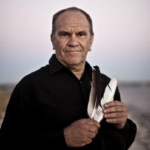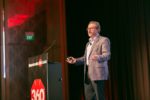Liveable Communities Through Engagement, Culture & Connection

It is every conservationist’s goal to bring nature back to urban areas. Life begins with nature, yet sometimes it needs a little help to keep thriving. Our current economic crisis is not deterring organisations in continuing vital conservationist work, and many are teaming up together to push forward with finding the best ways to achieve environmental and cultural sustainability. Webinar 3 of the Liveable Cities Conference: Webinar Series 2020 will take this focus on Tuesday 23rd of June, with three keynote speakers delivering an incredible line-up. CLICK HERE for the program details and read below for a glimpse of what …









